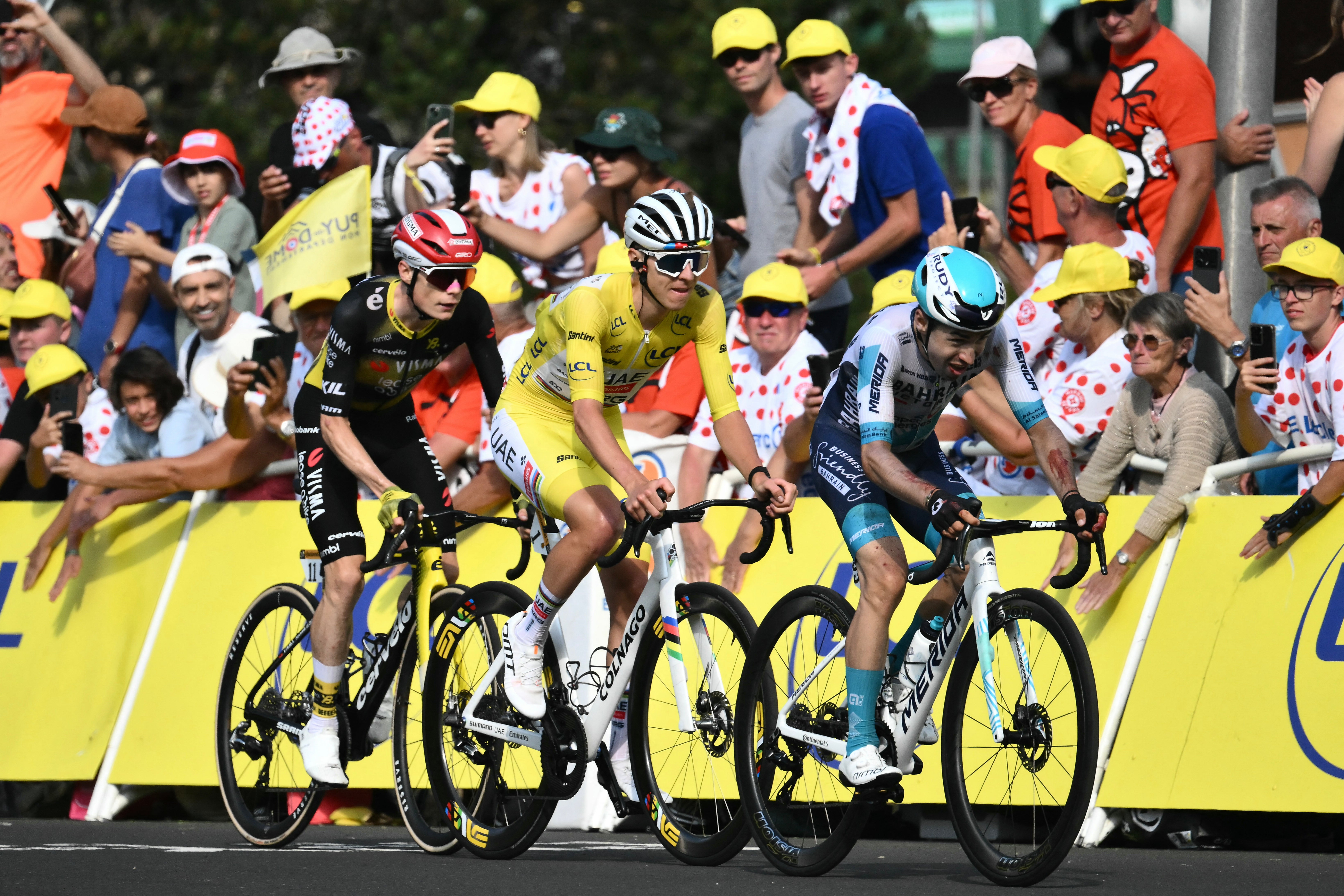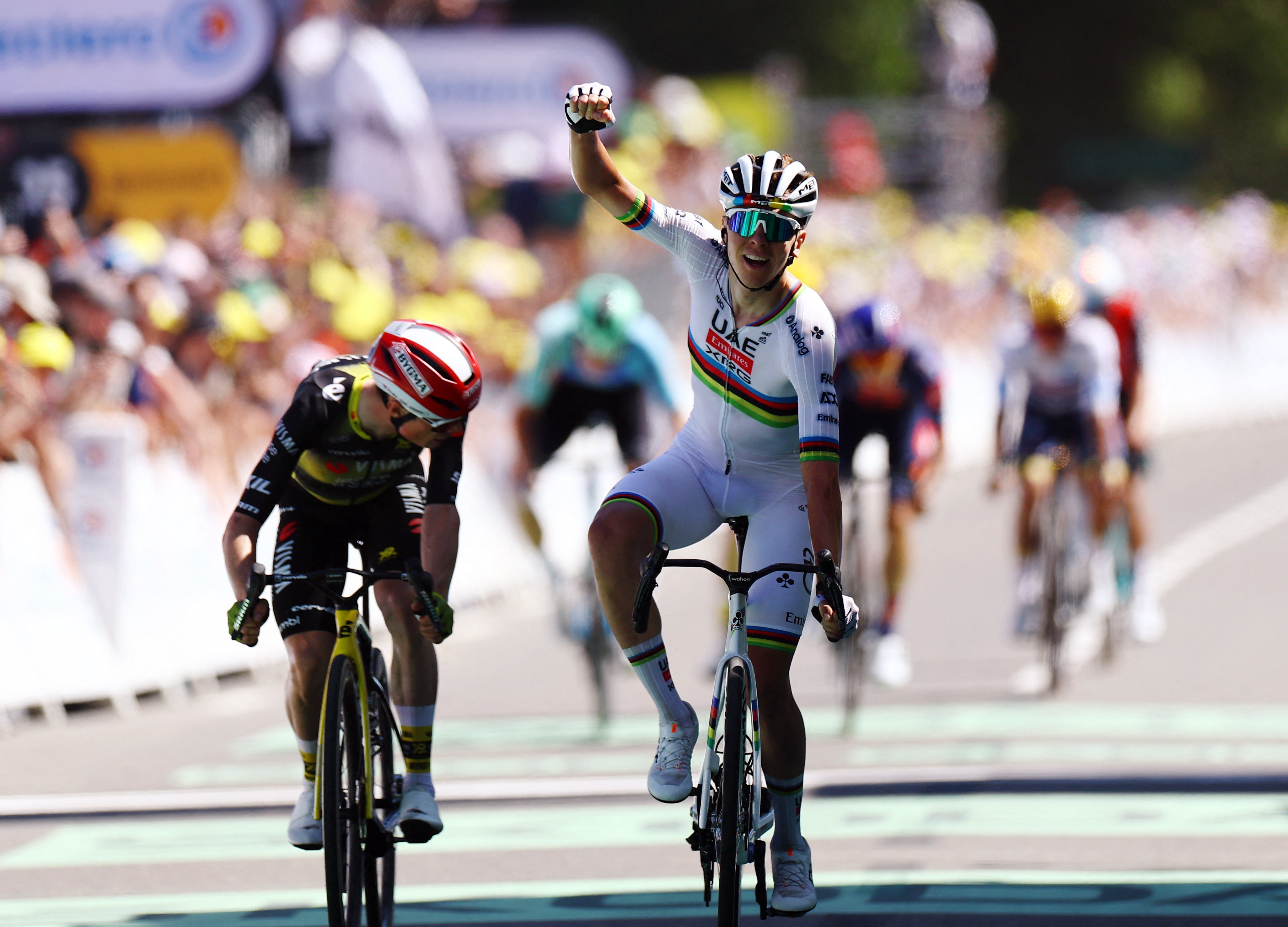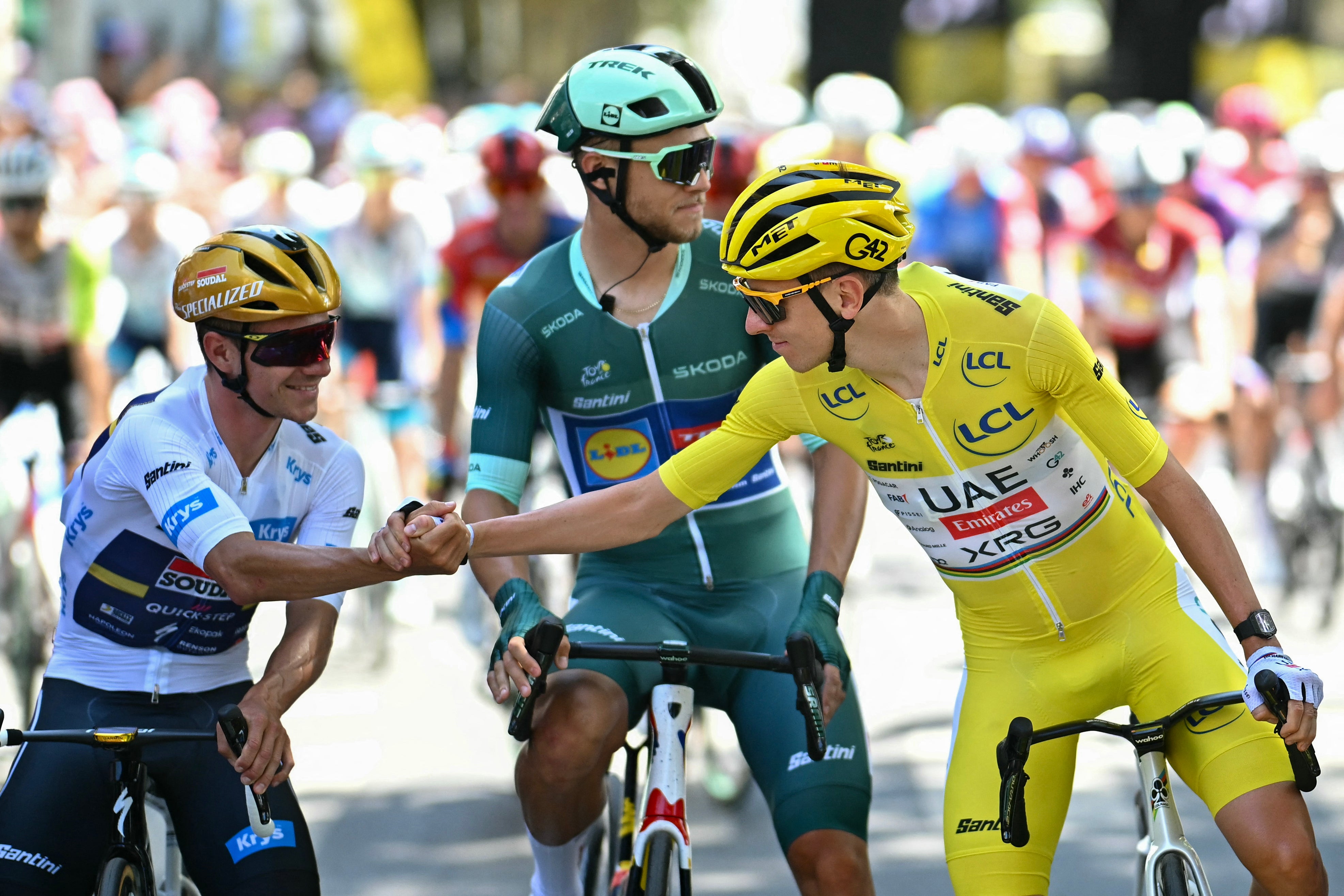The Tour de France was upended on a fascinating stage 10, with the first rest day giving riders – and observers – a chance to take stock after a fascinating opening week.
Bastille Day was billed as the first real test, 4,450m of climbing in the Massif Central. There was to be no French joy but instead delight for Ireland as Ben Healy rode himself into the race lead, half a minute ahead of previous leader Tadej Pogacar.
While Healy is unlikely to represent a long-term threat, where does this unexpected turn of events leave defending champion Pogacar and his key rivals for the title?
Once again, the two strongest riders in the race are Pogacar and two-time champion Jonas Vingegaard. The pair have won the last five Tours de France and while they now sit second and fourth respectively (Vingegaard 1min 46sec down on Healy but more significantly 1 min 17sec down on Pogacar) they remain the overwhelming favourites.

A large amount of Vingegaard’s deficit is down to his abysmal time-trial on stage five, coupled with Pogacar’s brilliant ride on the same stage. Other than that this Tour has followed a familiar pattern: Pogacar has attacked to gain time and win stages – picking up two so far – and Vingegaard has largely responded, without making any serious attempts of his own to steal back any time.
In terms of team strength, the balance of power has now shifted further in Vingegaard’s favour. Visma-Lease a Bike still have a full-strength squad and have hardly had to use it, with former Vuelta a Espana winner Sepp Kuss in particular keeping out of sight but definitely not out of mind.
Simon Yates and Matteo Jorgenson look in stellar form, with the Brit winning stage 10 and the American playing his role to perfection in testing the resolve of Pogacar and UAE Team-Emirates XRG in the hilly stages. Vingegaard and Jorgenson both had poor time trials considering their strength in the discipline, but other than that, it has been a successful week for the Dutch team.

For Pogacar, however, there are worrying signs. The most significant of course is the departure of Joao Almeida, the Slovene’s key mountain lieutenant. A crash on stage seven put paid to Almeida’s own GC hopes and ultimately his entire Tour. He fought on despite a broken rib but eventually abandoned on stage nine.
Interviewed at the start of stage eight, the Portuguese rider told TNT Sports that “being useless” for the team as a result of his injury would make him feel just as bad as the injury itself. The 26-year-old, who recently won the Tour de Suisse, is not just a formidable climber but also an excellent and selfless domestique. UAE have plenty of the latter left, but none on quite the same level as Almeida.
That comparative lack of team strength was made evident on stage 10, and things went from not-ideal to even worse when Pavel Sivakov was spotted visibly ailing on the first categorised climb of the day’s eight, leaving Pogacar two domestiques down. Despite UAE controlling proceedings for nearly all of the opening week, Nils Politt and Tim Wellens could not keep a nearly 30-strong breakaway on a leash. The gap swung out to nearly six minutes and Ben Healy moved into the virtual race lead, while UAE burned through their remaining domestiques trying to keep things in some vague semblance of order.

Inside the final 20km Visma made their numerical advantage felt, with wave after wave of attacks by Jorgenson and Kuss, forcing UAE to chase and burn through Marc Soler too. That strategy worked for Visma in 2022 and 2023, using the combined might of a team of super-domestiques including Primoz Roglic to wear down UAE and isolate Pogacar.
‘Death by a thousand cuts’ didn’t quite work on Monday, with Pogacar ultimately going down the route of attack being the best form of defence. His late acceleration distanced everyone but Vingegaard, as we have become accustomed to seeing over the last five years, and once again this Tour feels like a two-horse race.
But while Visma failed to drop Pogacar, they did distance his remaining teammates. Adam Yates and Jhonatan Narvaez were the last men standing for UAE and although they initially managed to haul themselves back into contention, they were dropped for good inside the final 10km. This felt like a test run for the much more gruelling terrain in the Alps and Pyrenees later on, and Visma can be satisfied with the results.

It may not matter, of course; Pogacar is the best rider in the world, and even breaking down his team may not be enough to dislodge him. But it would certainly unsettle him.
As for the rest? Remco Evenepoel, currently third, looks well-placed to defend his podium place from last year. The young Scot Oscar Onley has impressed, sticking with the elite GC riders on all terrain, while Primoz Roglic, Carlos Rodriguez, Felix Gall and Enric Mas have all suffered but still loiter in and around the top 10.
The going only gets tougher from here, with a mountainous time trial and the Pyrenees lurking in the early stages of the second week. This is the real race of truth.
On the basis of the opening week, Pogacar may be winning the battle, but Visma – as they always do – have their sights set on winning the war.







